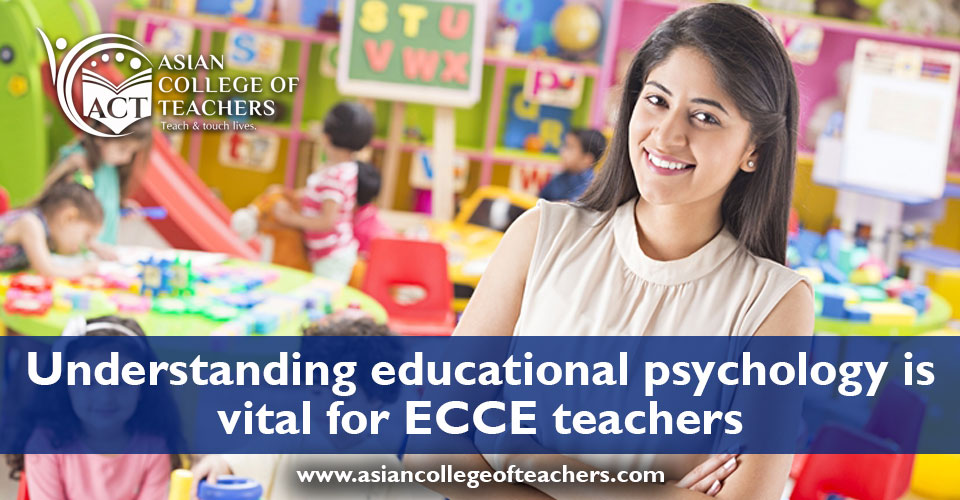Understanding Educational Psychology Is Vital For ECCE Teachers
17th October 2017

According to John Adams, “Teacher should know John as well as Latin”. This means that the teacher needs to know the child as well as the subject matter. Adams considers a child as a book of which the teacher needs to know the nature, capacities, likings, aptitudes and attitudes.
Now coming to the advantages provided by the educational psychology, we will go through few of them. It must also be noted that Montessori Teacher Training Courses, Nursery teacher training courses, Pre Primary Teacher Training Courses are some of the teacher training courses that include Psychology as one of the main aspects of their curriculum.
Understanding the child and their differences:
It has been rightly said that to teach a child it is really necessary to know what they think and how they perceive certain ideas and activities. Earlier the notion of “all children are more or less alike” thus, same speed of progress was expected of them. All such notions are undergoing modification and there is a growth of application of the knowledge of psychology to the process of teaching and learning.
Formulation of attainable goals:
Knowledge on Psychology helps the teacher to formulate realistic goals of education and with proper analyzing the situations the goals is easily attained.
Providing knowledge about the laws of learning:
Teaching is a process which enables and enriches the learner. The knowledge of psychology provides an insight to the teacher about the ways in which learning can take place in the best possible manner. Thus, knowledge on psychology helps the teacher to plan and execute the methods and techniques of teaching.
Providing knowledge of potentialities:
Each individual is endowed with their unique potentialities, which differs from person to person or might even be the same. Psychology helps the teacher to know and assess the potentialities of the individuals and guides them accordingly. Without knowing the potentialities of children, all efforts of the teacher to improve them will simply be misguided.
Rewards and punishment:
A teacher is considered to be the sole individual who possesses the ability to hold rewards and punishment which they use to keep a check on the learners. Psychology studies this problem in depth and helps the teacher to understand the actual need and the desirability of the both. Both of this gives better results.
Knowledge about mental abnormalities:
The final aim of education is to develop a balanced and well-adjusted personality. But there may be numerous reasons which lead to mental abnormalities in the pupils. The knowledge about their causes may help the teacher to take effective measures to avoid or correct them.
Realization of the teacher’s own role:
Psychology sheds a great amount of light on the fact that the teacher’s own attitude plays a pivotal role in the proper development and learning of the pupils. The teacher must treat the child psychology important to impart proper knowledge to the learners. This will go a long way in realizing the objective of education.
